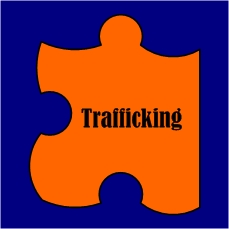"Loopholes in Adoption System" Have Created Trafficking in Ghana

One hundred government officials, civil society members and Ghanian and international media gathered in Accra for the 9th Citizen Kofi Media Dialogue Series to discuss the issue of modern-day slavery and the media’s role in addressing it.
Besides their mention of one of the sickest international adoption abuse cases (second paragraph of excerpt), they mention how there is no money available and little infrastructure for prosecution or “post-rescue care.”
Since the adoption industry is part of the loophole in the system, post-rescue care of the trafficked child needs to be added to the long list of adoption reforms and should be paid for by the industry that has created this mess. In the case of Ghana, it takes $350 to return a victim to their family. There are not enough money sources currently in Ghana for them to act in as many cases as they would like. Contrast that pittance of an amount with what is spent in the adoption process.
“”One of Ghana’s leading human right advocates, Nana Oye Lithur, Executive Director of the Human Rights Advocacy Centre, said that Ghana is faced with the big challenge of poor monitoring, protection and reintegration of trafficked children, who have been rescued.
According to her, there were countless cases where victims rescued from trafficking rings went back to their traffickers, because there was no post-rescue care available for them. She also revealed that loopholes in the adoption system have created a new type of human trafficking problem in Ghana and called for the government to take up greater responsibility in combating human trafficking. She cited a case where some Ghanaian children were adopted by Westerners, who ended up forcing them to engage in sexual intercourse with dogs, while videotaping it.
Tatiana Kotlyarenko, Executive Director of Enslavement Prevention Alliance,West Africa, shared highlights of the report titled Ghana’s Human Trafficking Act: Successes and Shortcomings in Six Years of Implementation based on comprehensive research and interviews of over 80 anti-human trafficking stakeholders in Ghana.
The report assessed that: Government entities in Ghana have achieved most of the preventative goals and tasks set forth in the Act, making the first prevention the most successful so far. The Act mandates extensive protection for trafficked persons. Government entities in Ghana have made some efforts to provide protection to trafficked persons by way of rescue, shelter, and other support, but have taken insufficient steps to implement the second protection successfully.
The report also reveals that: The government of Ghana initiated only six prosecutions and obtained four convictions of trafficking offenders during 2010, a decline in prosecution efforts from the previous year, and it failed to provide information on the number of trafficked persons it referred to protective services. Despite the government?s recognition that the majority of trafficking occurred within the country, authorities only prosecuted two cases of internal, or domestic, trafficking during 2010.
One of the report interviewees, who also moderated the event, Angela Dwamena-Aboagye, Executive Director of The Ark Foundation stated: The major weakness of the Human Trafficking Act . . . is that it doesn’t look at means of appropriation. The money doesn’t come, nothing gets done, and you get a situation and where an NGO that’s not so well-endowed has to look for 500 GHC ($350 USD) for the anti-trafficking unit of the Police to put fuel into a police vehicle to transport trafficking victims back to their families.”
Ghana: Local Media, Civil Society Debate Modern-Day Slavery
[All Africa 10/17/11]
REFORM Puzzle Piece


Recent Comments